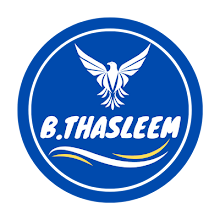Plasma: is the liquid part of blood; it transports dissolved substances around the body and defends it against disease.
Composition of Blood:
Plasma is the liquid part of blood. It contains many important substances which must be carried around the body.
Functions:
Transport of:
| |||||||||||||
Defense:
|
Please call them "useful substances".
The Plasma contains dissolved substances. Most of these are useful and are carried to places where they are to be stored or used. The products of digestion including glucose, amino acids, mineral salts and vitamins are carried from the small intestines (ileum) to other organs. Glucose is either stored in the liver and muscles as glycogen or used in tissue respiration. Amino acids are used by all your tissues for growth and repair. The liver is able to remove excess amino acids from blood plasma and add some of those which are needed. The nitrogen from excess amino acids is turned into a harmful substance called urea.
Vitamins are carried by plasma from the ileum to all other parts of the body. They help keep your tissues healthy. Minerals are also absorbed into blood plasma in the ileum and carried around the body. Different minerals are required for different reasons. You must know that calcium is needed for teeth and bones. It is also required for muscles. Calcium ions are involved in the chemical mechanisms of muscle contractions. So without enough calcium in your diet, your muscles are not able to contract correctly.
Iodine is required by the thyroid gland in your neck to make a hormone called thyroxine. This controls how fast your body works. In particular, thyroxine affects the rate of tissue respiration. Hormones are secreted by endocrine glands and carried in blood plasma to target organs. Insulin is secreted by endocrine glands called "islets of Langerhans". These are small groups of cells in your pancreas. The main target organ for insulin is the liver. Insulin stimulates the liver to convert excess glucose in your blood into glycogen. Insulin is also necessary for tissue respiration.
Baddies:
Please call them "harmful substances".
The main baddies in your blood are urea and hydrogen carbonate ions. Urea is the product of excess amino acids. It is put into blood plasma by the liver and removed by the kidney. This process is called excretion. Your kidneys also excrete excess water and salts from your body. This process is called "osmoregulation". It is under the control of the brain and involves chemical messengers ( hormones) secreted by the pituitary gland.
Hydrogen carbonate ions are produced when carbon dioxide produced by tissue respiration is absorbed by blood plasma. In your lungs, hydrogen carbonate ions turn back to carbon dioxide which is excreted when you exhale.
Antibodies kill bacteria. Antibodies are goodies and bacteria are baddies. If the goodies win, you live to a ripe old age. You may have a natural immunity to some diseases, but other diseases are likely to kill you if you do not receive medical attention. The problem is that the germs multiply faster than you white blood cells kill them. If you cannot make the right antibodies you will get very ill and could die. You can teach your body to recognise diseases like smallpox by "inoculating" yourself (get your doctor to do it) with a very similar disease like cowpox. Edward Jenner discovered this. Cowpox does not make you very ill and will certainly not kill you. When your white blood cells have learnt how to make the antibodies needed to destroy cowpox they can also destroy smallpox. Get yourself inoculated now especially if you are going to a part of the world where smallpox is endemic.
When you cut yourself, the damaged blood vessels trigger the clotting process. Fibrin, which is a soluble protein in your blood, turns into fibrin which is an insoluble fibrous protein. Platelets get caught in the network of fibrin and form a clot which dries up into a scab. This is quite a good thing because it prevents any more blood from getting out and it prevents germs from getting in. So fibrin is a goody.





0 comments:
Post a Comment